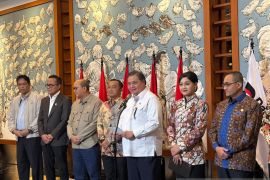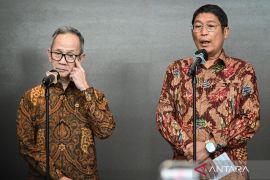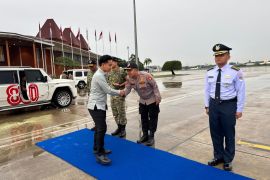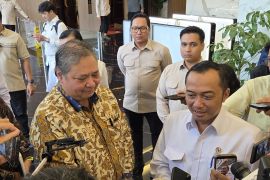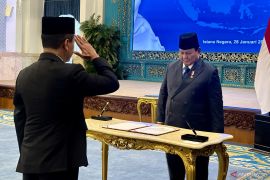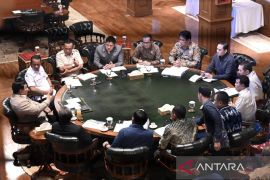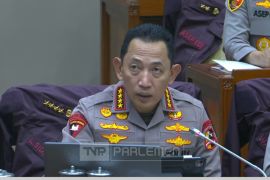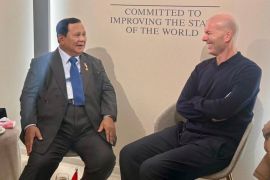The government wanted to make sure adequate stocks of affordable food, President Susilo Bambang Yudhoyono said at Radisson Blu Hotel, inside the Zurich international airport complex, Switzerland, Saturday (Jan 29).
"At regional level, we want to make sure that our rice producing regions do not fail. This is one of our efforts to curb price hikes domestically. A stabilization program has also been carried out. We will see which commodities will have price hikes abnormally several months to come," he said.
The government has also prepared several policies such as fiscal initiative, market operation, as well as export and import mechanisms to address food price hike problems.
If necessary, the president would also ask the business sector to help the public through the Corporate Social Responsibility (CSR) programs, he said.
"There is also a final contingency plan. If food prices have burdened the public, we will consider an initiative by using our budget and fight at the Parliament if food prices have really burdened the people," he said.
The president also hoped that globally, many countries could come up with policies that could curb food price hikes, so that food exporting nations would not abruptly stop their food exports because it could threaten other countries` food resilience.
Speaking in the World Economic Forum (WEF) in Davos, Yudhoyono discussed his concerns for price hikes in food and energy prices that could lead to inflation, poverty and even unrest.
The redefinition of sustainable development discussion on WEF`s second day of the first session featured panelists consisting of the Finish President Tarja Halonen, Research in Motion Co CEO Jim Balsillie, President Yudhoyono, Wallmart CEO Mike Duke, Mexican President Felipe Calderon, and Bill Gates.(*)
Editor: Ruslan Burhani
Copyright © ANTARA 2011

